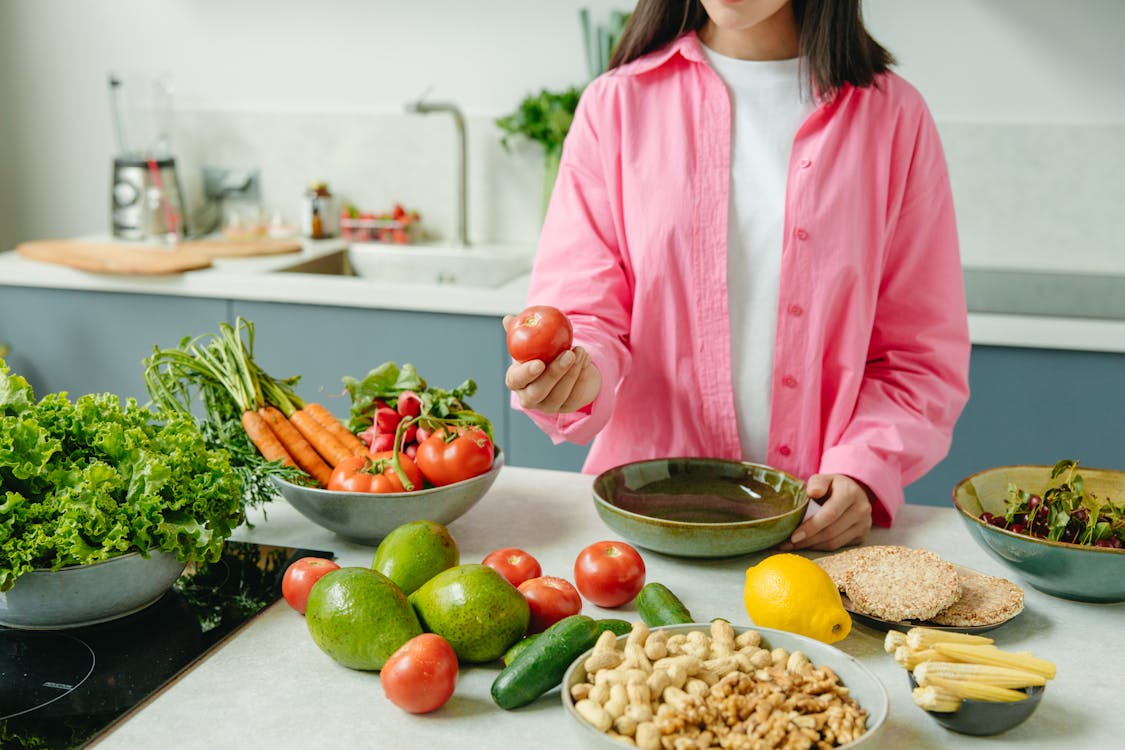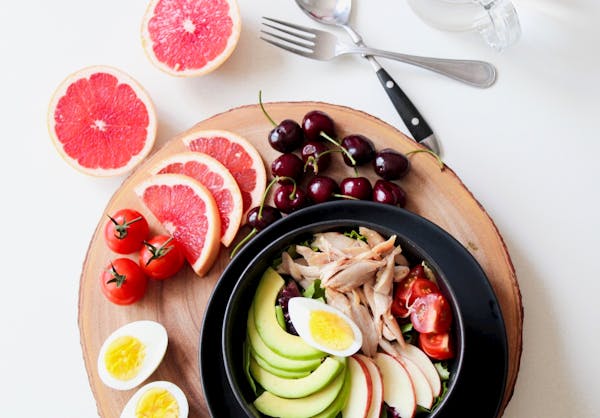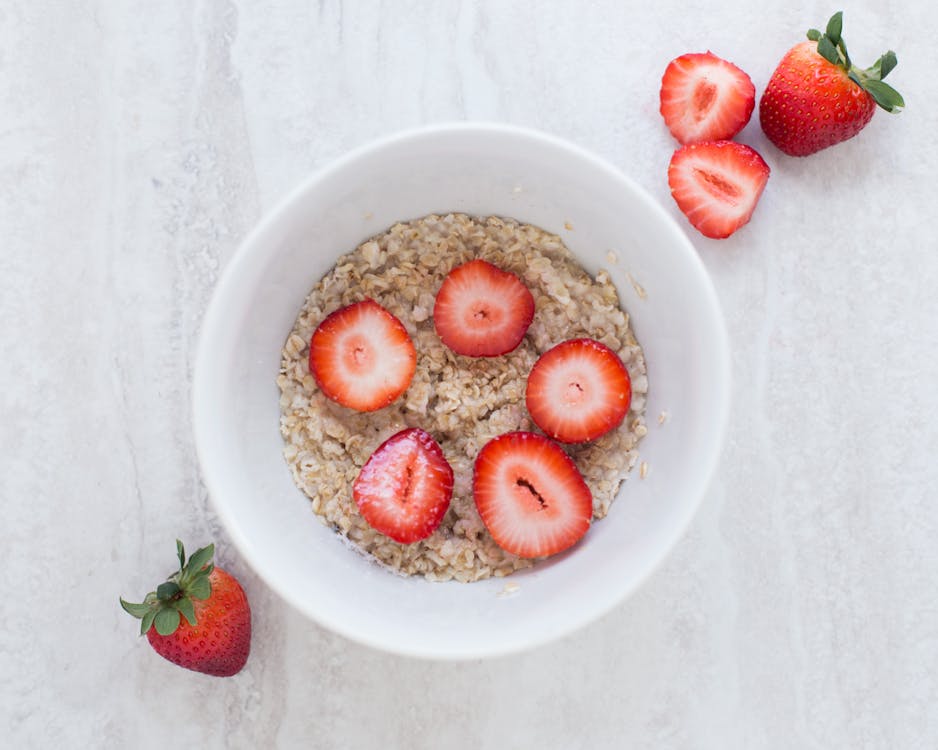What Are the Best Practices for Maintaining a Healthy Diet?
Maintaining a healthy diet is one of the most important things you can do for your overall well-being. A balanced diet provides your body with the essential nutrients it needs to function properly, boosts your energy levels, and helps prevent chronic diseases. But with so much conflicting information out there, it can be challenging to know what the best practices are for maintaining a healthy diet. In this article, we’ll explore some simple, effective strategies that can help you stay on track.
1. Eat a Variety of Foods

One of the most important practices for maintaining a healthy diet is eating a wide variety of foods. No single food can provide all the nutrients your body needs, so it’s essential to include different types of foods in your meals.
- Why It’s Important: Different foods contain different nutrients. For example, fruits and vegetables are rich in vitamins and minerals, while whole grains provide fiber and energy. Including a variety of foods ensures that you get a balanced intake of all necessary nutrients.
Example: Include colorful fruits and vegetables in your meals to ensure a range of vitamins and minerals.
2. Control Portion Sizes

Another key practice is controlling portion sizes. Even healthy foods can contribute to weight gain if eaten in large amounts. Being mindful of how much you eat can help you maintain a healthy weight.
- Why It’s Important: Overeating can lead to weight gain and increase your risk of developing health issues like obesity, diabetes, and heart disease. By controlling portion sizes, you can enjoy a balanced diet without consuming excess calories.
Tip: Use smaller plates or bowls to help control portion sizes. This simple trick can make your portions appear larger and help prevent overeating.
Example: Use a smaller plate to serve your meals and avoid going back for seconds.
3. Include Plenty of Fruits and Vegetables

Fruits and vegetables are crucial components of a healthy diet. They are low in calories and packed with vitamins, minerals, and fiber, which are essential for good health.
- Why It’s Important: Fruits and vegetables provide important nutrients like vitamin C, potassium, and dietary fiber, which can help reduce the risk of chronic diseases and keep your body functioning properly.
Tip: Aim to fill half your plate with fruits and vegetables at each meal. This will ensure you’re getting enough nutrients while keeping your calorie intake in check.
Example: Add a salad or a side of steamed vegetables to your lunch or dinner.
4. Choose Whole Grains Over Refined Grains

Whole grains, such as brown rice, oats, and whole wheat, are more nutritious than refined grains like white rice and white bread. They retain more of their natural nutrients and provide longer-lasting energy.
- Why It’s Important: Whole grains are rich in fiber, which helps with digestion and keeps you feeling full longer. They also have a lower glycemic index, meaning they cause a slower, steadier rise in blood sugar levels.
Tip: Replace refined grains with whole grains in your meals. For example, choose whole-wheat bread instead of white bread, or brown rice instead of white rice.
Example: Opt for a bowl of oatmeal made from whole oats for breakfast instead of sugary cereal.
5. Limit Added Sugars and Salt

Too much sugar and salt in your diet can lead to various health problems, including obesity, heart disease, and high blood pressure. It’s important to be mindful of how much you’re consuming.
- Why It’s Important: Added sugars contribute extra calories with little nutritional benefit, while excessive salt can lead to high blood pressure and other cardiovascular issues.
Tip: Read food labels to check for added sugars and sodium. Try to choose products with lower amounts of both. Also, consider seasoning your meals with herbs and spices instead of salt.
Example: Choose a piece of fruit instead of a sugary snack, and season your meals with herbs like basil or rosemary instead of salt.
6. Stay Hydrated

Drinking enough water is another essential part of a healthy diet. Water helps your body with many functions, including digestion, absorption of nutrients, and temperature regulation.
- Why It’s Important: Staying hydrated helps your body work efficiently and can also prevent overeating, as sometimes thirst is mistaken for hunger.
Tip: Carry a water bottle with you throughout the day to remind yourself to drink water regularly. Aim for about eight glasses of water a day, but adjust based on your activity level and climate.
Example: Keep a reusable water bottle at your desk or in your bag to sip on throughout the day.
Product Suggestion: Consider using a Hydro Flask Water Bottle to stay hydrated on the go.
7. Plan Your Meals

Planning your meals in advance can help you make healthier food choices and avoid last-minute temptations like fast food. It also ensures that you have all the ingredients you need for nutritious meals.
- Why It’s Important: Meal planning can help you control portions, save money, and reduce stress during the week. It also makes it easier to stick to a healthy diet.
Tip: Take some time each week to plan your meals and snacks. Make a grocery list based on your meal plan to avoid impulse buying.
Example: Write out a weekly meal plan and grocery list on Sunday to prepare for the week ahead.
8. Practice Mindful Eating

Mindful eating involves paying attention to what you eat, savoring each bite, and listening to your body’s hunger and fullness cues. This practice can help you enjoy your food more and prevent overeating.
- Why It’s Important: Mindful eating helps you develop a healthier relationship with food. It encourages you to eat only when you’re hungry and stop when you’re full, which can prevent overeating and weight gain.
Tip: Eat slowly and without distractions, such as watching TV or using your phone. Focus on the flavors and textures of your food.
Example: Sit at the table without any screens and enjoy your meal slowly, focusing on each bite.
Conclusion
Maintaining a healthy diet doesn’t have to be complicated. By following these best practices—eating a variety of foods, controlling portion sizes, including plenty of fruits and vegetables, choosing whole grains, limiting added sugars and salt, staying hydrated, planning your meals, and practicing mindful eating—you can support your overall health and well-being. Remember, a healthy diet is about balance and making informed choices. For more tips and advice on living a healthy lifestyle, visit The Presidental.

Leave a Reply